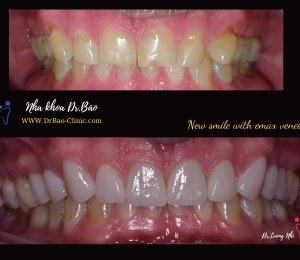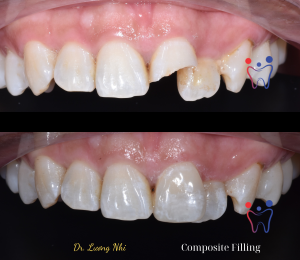Dental Implants

Dental implants are surgical-grade root devices that support permanent tooth prosthetics that are manufactured to last a lifetime. These artificial roots are anchored in the bone beneath the gums where they become fused into the jaw. A crown is mounted atop the implant for a long-lasting and natural-looking smile. Many dentists and patients prefer dental implants because they offer the same function as natural teeth and also help prevent bone atrophy in the jaw. Dental implants may be used to replace a single missing or damaged tooth or to restore an entire smile.
Did you know…
that approximately 30 million people live with no natural teeth in one or both jaws? But more and more dental patients are opting for dental implants as a means of tooth replacement. The American Academy of Implant Dentistry reports that 3 million people currently have dental implants – a number that is rapidly growing by about 500,000 per year. Modern titanium implants were first developed in the 1950’s, but archeologists have determined that ancient Egyptians and Mayans were the first cultures to implant artificial teeth.
Frequently Asked Questions
Are dental implants right for me?
You may qualify for dental implants if you have missing, broken or severely decayed teeth and are in relatively good overall health. The only way of determining your eligibility for implants is to consult with an oral care provider to identify whether you have adequate bone support and healthy gums that will support the new tooth structure.
What should I expect if my dentist and I decide dental implants are right for me?
The placement of dental implants is a multi-step process that typically takes between 6 and 9 months to complete. It begins with a surgical procedure during which a titanium rod is placed where a previous natural tooth root once was. The gums are sutured shut over the implant, where is will stay for several months while it heals and begins fusing with the surrounding bone. Due to the nature of implant placement and its average procedure time of between 1 and 2 hours, you’ll be sedated and/or anesthetized for the duration of the treatment. At the conclusion of the healing period, you’ll return to be fitted for permanent crowns and have them placed.
What type of post-treatment care will I require?
It is normal to experience some discomfort, including bruising and swelling following a dental implant procedure. However, inflammation and pain may be managed with over-the-counter medications, hydrocodone, or codeine. You may be asked to eat only soft foods for approximately 2 weeks until the surgical site heals.
Why Dental Implants?
If you have one or more missing teeth or will soon be having a tooth extracted, you may be thinking about tooth replacement options. Most patients have a choice in this decision, usually comparing the benefits of implants versus other solutions, like dentures and bridges. Though not everyone will be a good candidate for dental implants, those who are will experience a more secure and long-lasting solution when choosing implants.
At our practice, we highly recommend dental implants whenever possible. There are many reasons for getting dental implants. In most cases, a patient has already lost one or more teeth due to tooth decay, periodontitis or some type of physical trauma. However, the ability to completely customize dental implants also makes them an option for people who desire the improved confidence that comes from a perfect smile. You may also wish to consider dental implants if you:
- Have pain caused by a malocclusion
- Want the look and feel of a real tooth
- Desire a low-maintenance routine
Did you know…
Success rates are extremely high for this procedure – especially in patients with healthy gums and sufficient bone structure. Furthermore, implants are very low-maintenance in comparison to other tooth replacement solutions. In fact, you can treat an implant in much of the same way you treat your other teeth.
Are Dental Implants Right for You?
If you think dental implants may be right for you, we invite you to contact our office to schedule your one-on-one consultation. We will be happy to evaluate your tooth replacement needs and help you determine if implants could the solution for you.
Candidates for Dental Implants

Though many people make good candidates for dental implants, this method of tooth replacement is not for everyone. Patients must meet certain criteria to improve the long-term results of a dental implant procedure.
Dental implants may be right for you if you have one or more missing teeth, or if you have an unhealthy tooth that will need to be extracted. Since implants are embedded within the jaw, patients must have enough bone and soft gum tissue to support the implant. Additionally, a person getting dental implants should be in good general and oral health to reduce the risk of complications during and after the procedure. Conditions like gingivitis and periodontitis should be addressed before getting dental implants.
Did you know…
When a tooth comes out, the bone beneath begins to gradually deteriorate? Waiting too long to replace a tooth can raise the risk of bone erosion, making it more difficult to achieve successful results. Patients who do not qualify for dental implants because of poor bone support may qualify for bone grafting. Similarly, individuals with inadequate gum tissues may be candidates for soft tissue grafting, which may make a future implant possible.
Guided Implant Surgery
Guided implant surgery is a method that allows Dr. Bao to plan your implant surgery on a computer using Cone Beam Computerized Tomography (CBCT) as opposed to traditional panoramic x-rays that offer a limited approach during the planning and execution of the oral surgery. This technique ensures a more accurate process from plan to execution.
Did you know….
Guided implant surgery uses CBCT imaging to diagnose you before the surgery and develop a treatment plan. Generally, you can expect to first have a scan in the dental office, go through treatment planning with Dr. Bao, and then go through the implant surgery.
What are the benefits of guided implant surgery?
There are a variety of benefits to guided implant surgery. This method of treatment is far less invasive. The time spent under anesthesia is usually much less than traditional dental implant surgery.
Schedule a Consultation
Keep in mind that only your dentist can determine if dental implants are right for you. For more information or to schedule your one-on-one consultation, contact our office today. Our team has the skill and experience to make the smile of your dreams a reality.
Dr.Bao Dental Clinic – A Dental Implant Center In Da Nang
***** Some of the Implant cases in Dr.Bao Dental Clinic













